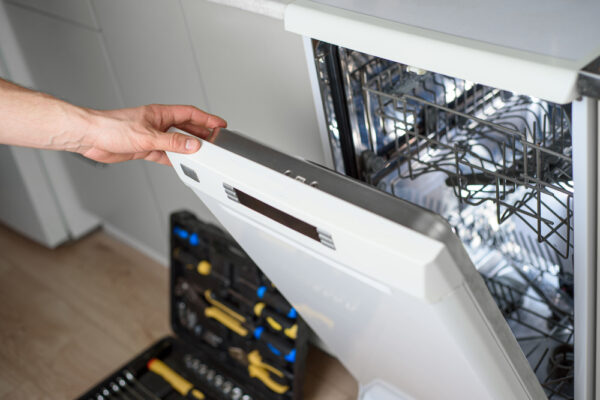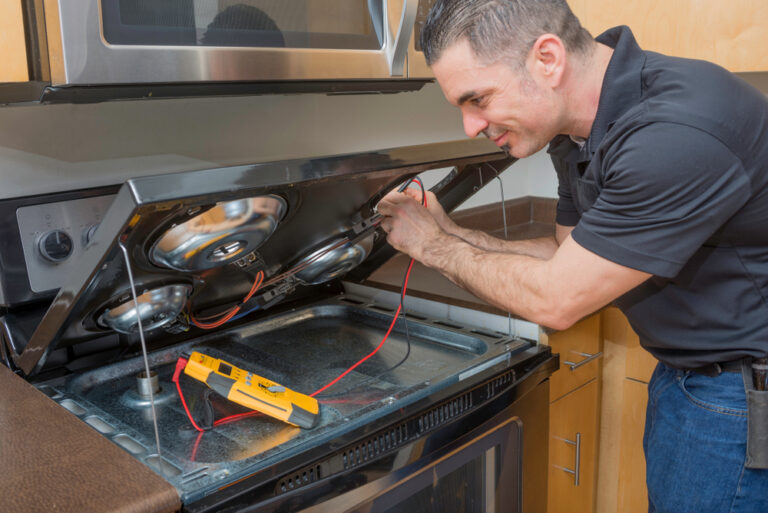
Should You Repair or Replace 20-Year-Old Appliances?
Introduction
In today's fast-paced world, having reliable appliances is crucial for maintaining a comfortable and efficient home. However, as appliances age, homeowners often face a tough decision: Should you repair or replace 20-year-old appliances? This question can be challenging to answer due to various factors like budget constraints, energy efficiency, and the emotional attachment to long-time household helpers. In this comprehensive guide, we will explore all facets of this dilemma—providing insights into common household appliances while considering the pros and cons of repairing versus replacing them.
Should You Repair or Replace 20-Year-Old Appliances?
When contemplating whether to repair or replace an appliance that has served you well for two decades, several important factors come into play. The first consideration is the appliance’s condition. Is it still functioning adequately but showing signs of wear? Or has it recently experienced major breakdowns?
The Age Factor in Appliance Longevity
Understanding Appliance Lifespan
Most major appliances have a general lifespan that varies from 10 to 20 years:
- Refrigerators: Typically last about 13 years.
- Washing Machines: Usually around 10-15 years.
- Dishwashers: Average about 9-16 years depending on brand and use.
Given that your appliance is already at the tail end of its expected lifespan, it may be time to evaluate its efficiency.

Cost of Repairs versus Replacement
When making your decision, consider the costs involved in both scenarios. A qualified dishwasher technician might charge anywhere from $100-$500 for repairs depending on the issue. Compare this with the price of a new dishwasher which could range from $300 to $1,500 or more.
Repair Costs Breakdown:
| Repair Type | Estimated Cost | |----------------------------|------------------| | Minor Repairs (e.g., door seals) | $50 - $150 | | Major Repairs (e.g., motor replacement) | $200 - $500 | | Dishwasher Service Call | $75 - $150 |
Energy Efficiency Considerations
Older appliances are often less energy-efficient compared to modern ones. New models typically come with advanced technology designed to save water and electricity:
- Energy Star-rated dishwashers use about half the water of older models.
- Energy-efficient refrigerators can significantly lower your monthly utility bills.
This might make investing in a new appliance more appealing despite the upfront cost.
Emotional Attachment to Old Appliances
Many homeowners develop an emotional bond with their appliances over time. If your old dishwasher has been reliable through countless meals and family gatherings, it may be difficult to part with it even if it's showing signs of wear.
However, remember that nostalgia won’t help when you're dealing with leaks or inefficiency!
Identifying Common Issues in Older Appliances
Common Dishwasher Problems
Older dishwashers tend to exhibit specific issues such as:
If you find yourself dealing with these problems regularly, hiring a dishwasher fixer might be worth considering.
When to Call a Dishwasher Technician?
If you notice any persistent issues like those mentioned above, it's time to call in an expert. A reputable technician can diagnose problems accurately and provide solutions tailored for your specific model.
What Are Your Options After Diagnosis?
Once you've consulted a professional technician and identified the problem area, you typically have three options:

- If you're handy and feel confident tackling small repairs—like fixing a leaky hose—this could save you money.
- For more complex issues or if you're unsure how to proceed, hiring professionals who specialize in dishwasher repair near me is advisable.
- If repairs are too costly compared to replacing the unit altogether—or if you're looking for better efficiency—it may be best to invest in something new.
Evaluating Budget Constraints
Before making any decisions regarding whether you should repair or replace 20-year-old appliances, assess your financial situation:
- What’s your budget for either repairs or purchasing new appliances?
- How often do breakdowns occur?
Creating a pro-and-con list based on financial implications can help clarify whether repair services are worth pursuing or if it's time for an upgrade.
Appliance Features Worth Considering in New Models
If you choose replacement over repair, consider what features are essential for your household needs:
Smart Technology Integration
Modern appliances often come equipped with smart technology that allows users control via smartphone apps—ideal for busy households!
Improved Energy Ratings
Look out for Energy Star labels—these models not only help save money but also reduce environmental impact!
Enhanced Durability
Newer brands often use more robust materials designed for longevity compared to older models made from less durable components.
FAQs
Q1: Can I fix my dishwasher myself?
A1: Yes! Minor local dishwasher fixer repairs like replacing filters or hoses can often be done without professional help if you're comfortable working on appliances.
Q2: How much does it cost to hire a dishwasher technician?
A2: The cost varies by region and service required but generally ranges between $75–$150 for service calls plus additional fees based on repairs needed.
Q3: What’s considered “too old” for an appliance?
A3: While many appliances can last up 20 years or longer; once they hit about 15 years old—and especially if they show signs of wear—it’s wise to start considering replacement options seriously.
Q4: What are warning signs I should watch out for?
A4: Look out for leaks, strange noises during operation, failure to start cycles properly, and inconsistent cleaning results as key indicators that something might be wrong!

Q5: Will newer dishwashers really save me money on utilities?
A5: Absolutely! Most modern dishwashers use significantly less water and energy than older models which translates into lower utility bills over time!
Q6: Do I have warranty options when purchasing new appliances?
A6: Yes! Many retailers offer warranties ranging from one year up through extended coverage options based upon specific brands/models purchased so always ask before finalizing any deals!
Conclusion
Navigating the choice between repairing or replacing a 20-year-old appliance can feel daunting at times; however weighing all aspects carefully—including costs associated with view potential repairs versus purchasing newer models—will provide clarity moving forward! Remember that while familiarity breeds comfort; efficiency boosts productivity! When faced with such decisions ask yourself these essential questions:
- Is my current appliance meeting my needs effectively?
- Am I willing—or able—to invest further into its upkeep?
- Would replacing it ultimately enhance my home experience?
By answering these questions thoughtfully you'll empower yourself towards making informed choices benefiting both your lifestyle & finances!